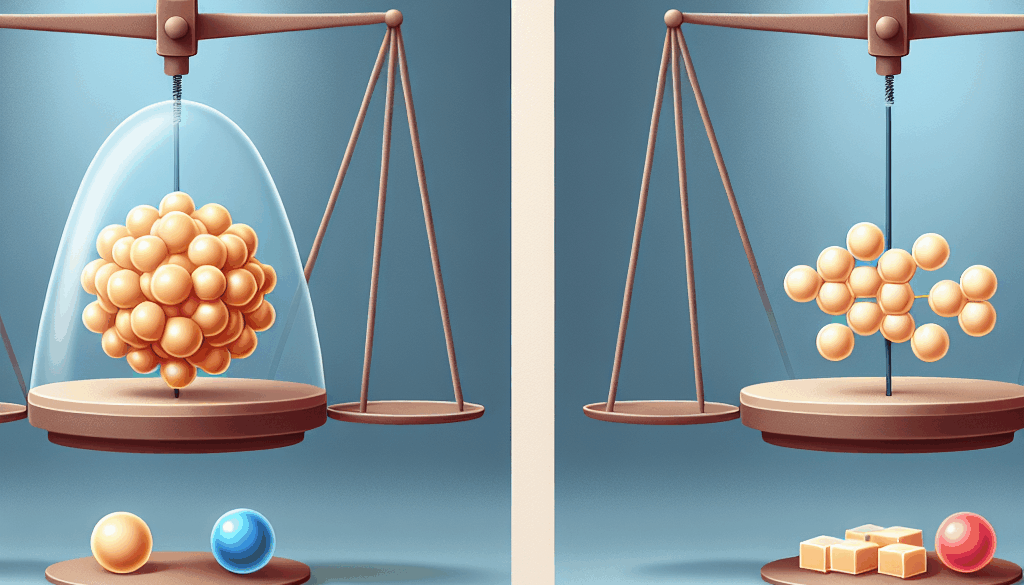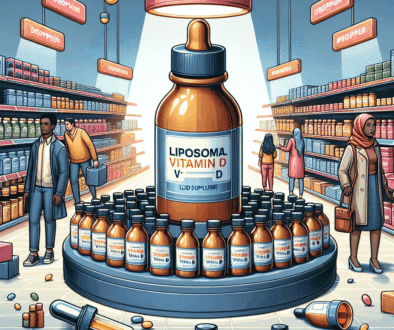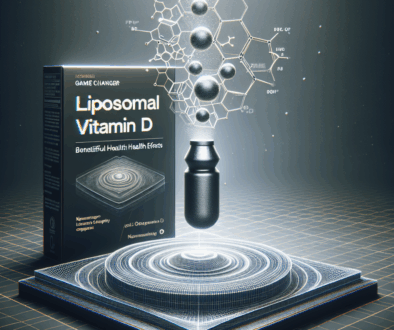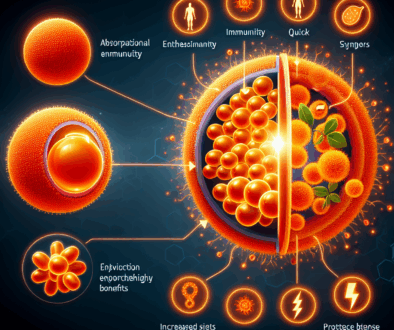Liposomal Glutathione or Reduced Glutathione: Which is Better?
-
Table of Contents
- Liposomal Glutathione vs. Reduced Glutathione: Which is More Effective?
- Understanding Glutathione and Its Importance
- What is Reduced Glutathione?
- Exploring Liposomal Glutathione
- Comparative Analysis: Liposomal Glutathione vs. Reduced Glutathione
- 1. Absorption and Bioavailability
- 2. Effectiveness in Clinical Outcomes
- 3. Cost and Accessibility
- 4. Safety and Side Effects
- Conclusion: Which Form of Glutathione Should You Choose?
- Explore ETprotein’s High-Quality Protein Products
Liposomal Glutathione vs. Reduced Glutathione: Which is More Effective?
Glutathione, often referred to as the “master antioxidant,” plays a crucial role in maintaining oxidative balance and overall health. Its benefits range from detoxification to enhancing immune function and potentially slowing the aging process. However, the method of delivery of glutathione into the body can significantly affect its efficacy. This article delves into the comparison between liposomal glutathione and reduced glutathione, exploring which form might be better for health supplementation.
Understanding Glutathione and Its Importance
Glutathione is a tripeptide consisting of three amino acids: cysteine, glutamate, and glycine. It is found in every cell of the human body, with particularly high concentrations in the liver, where it is pivotal in detoxification processes. The antioxidant properties of glutathione help neutralize free radicals, which can damage cells and contribute to aging and diseases.
What is Reduced Glutathione?
Reduced glutathione, or GSH, is the active form of glutathione in the body. It is directly involved in the neutralization of free radicals and reactive oxygen compounds, as well as the regeneration of other antioxidants such as vitamins C and E. Over-the-counter supplements typically contain this form of glutathione, promising to boost the body’s natural antioxidant defenses.
Exploring Liposomal Glutathione
Liposomal glutathione is a form of glutathione encapsulated within liposomes—tiny vesicles made from the same material as cell membranes. This encapsulation is believed to protect glutathione from being degraded by stomach acids and enzymes, enhancing its absorption in the intestines.
Comparative Analysis: Liposomal Glutathione vs. Reduced Glutathione
1. Absorption and Bioavailability
- Liposomal Glutathione: The liposomal encapsulation is designed to increase the bioavailability of glutathione. Studies suggest that liposomal glutathione may be more effectively absorbed by the body, leading to higher plasma glutathione levels.
- Reduced Glutathione: While effective in theory, the oral bioavailability of reduced glutathione is debated among scientists. Some studies indicate that much of it is lost in the digestive process before it can be absorbed.
2. Effectiveness in Clinical Outcomes
- Liposomal Glutathione: Research indicates that liposomal glutathione can significantly improve markers of oxidative stress and immune function. It has been used effectively in clinical settings for conditions like Parkinson’s disease and fatty liver disease.
- Reduced Glutathione: Although beneficial, the effectiveness of reduced glutathione can be limited by its poor absorption. However, when administered intravenously, it shows significant clinical benefits.
3. Cost and Accessibility
- Liposomal Glutathione: The technology involved in creating liposomal glutathione makes it more expensive than its non-liposomal counterparts.
- Reduced Glutathione: Generally more affordable and widely available in various forms, including pills and powders.
4. Safety and Side Effects
- Liposomal Glutathione: Liposomal glutathione is considered safe for most users, with few reported side effects. However, the long-term effects are still under investigation.
- Reduced Glutathione: Similarly, reduced glutathione is safe for most individuals, though gastrointestinal disturbances and allergic reactions are possible.
Conclusion: Which Form of Glutathione Should You Choose?
Choosing between liposomal glutathione and reduced glutathione largely depends on your health goals, budget, and preferences regarding supplement form. If higher bioavailability and potentially more significant health impacts are your priority, liposomal glutathione might be the better choice, despite its higher cost. However, for those looking for a more cost-effective option and are possibly considering intravenous methods, reduced glutathione could be suitable.
Ultimately, consulting with a healthcare provider can help tailor the choice to your specific health needs and conditions.
Explore ETprotein’s High-Quality Protein Products
For those interested in enhancing their health regimen, ETprotein offers a range of superior protein products. Their extensive lineup includes organic and allergen-free options, perfect for various dietary needs and health goals. Consider incorporating ETprotein’s products into your diet for optimal health and wellness.
ETprotein is Liposomal reduced glutathione Factory Manufacturer and Supplier in China, Check further information by visiting the Liposomal reduced glutathione Product Page
Liposomal reduced glutathione Product Page
Request Quotation and Samples of Liposomal reduced glutathione from ETprotein
About ETprotein
ETprotein, a reputable protein and elite nutrition ingredients Liposomal reduced glutathione Chinese factory manufacturer and supplier, is renowned for producing, stocking, exporting, and delivering the highest quality organic bulk vegan proteins and elite nutritional ingredients Liposomal reduced glutathione. They include Organic rice protein, clear rice protein, pea protein, clear pea protein, watermelon seed protein, pumpkin seed protein, sunflower seed protein, mung bean protein, peanut protein. Their offerings, characterized by a neutral taste, non-GMO, allergen-free attributes, cater to a diverse range of industries. They serve nutraceutical, pharmaceutical, cosmeceutical, veterinary, as well as food and beverage finished product distributors, traders, and manufacturers across Europe, USA, Canada, Australia, Thailand, Japan, Korea, Brazil, and Chile, among others.
ETprotein specialization includes exporting and delivering tailor-made protein powder and finished nutritional supplements. Their extensive product range covers sectors like Food and Beverage, Sports Nutrition, Weight Management, Dietary Supplements, Health and Wellness Products, and Infant Formula, ensuring comprehensive solutions to meet all your protein needs.
As a trusted company by leading global food and beverage brands and Fortune 500 companies, ETprotein reinforces China’s reputation in the global arena. For more information or to sample their products, please contact them and email sales(at)ETprotein.com today.












